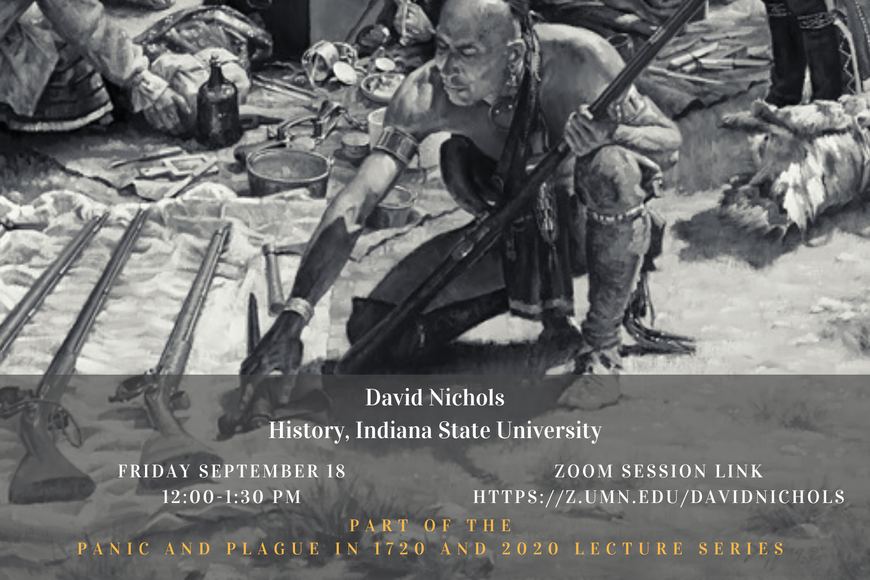CEMH Digital Talk: David Nichols (Department of History, Indiana State University)
Title: “The Infectious World: Epizootics and Indigenous Economies in the Mississippi Valley, circa 1720 CE”
Abstract: "The Infectious World" will discuss two deadly animal illnesses, or epizootics, that erupted half a world apart in the late 1710s and early 1720s. One was an unidentified pestilence that thinned out the large-mammal population of Minnesota in 1718-19, the other a series of rinderpest outbreaks that afflicted southern and western Europe throughout the era. Both had a dramatic impact on the peoples of the Mississippi Valley. The former drew the Dakotas into the northern Plains bison economy, and obliged them to compete with or conciliate Indigenous rivals in their new range. The latter created a shortage of leather in Europe and led to the expansion of the deerskin trade in the lower Mississippi Valley, which in turn created a large new market for consumer goods and a new field for conflict in the Native southeast. Each event and each chain of consequences illustrates the interaction of environmental, economic, and cultural history in both the continental and Atlantic worlds.
Bio: David Nichols is the Carmony Chair in History and Professor of Native American and Indigenous Studies at Indiana University. He is also the editor of the Indiana Magazine of History. His books include Engines of Diplomacy: Indian Trading Factories and the Negotiation of American Empire (2016) and Peoples of the Inland Sea: Native Americans and Newcomers in the Great Lakes Region, 1600-1870 (2018).
Part of the Panic and Plague in 1720 and 2020 Lecture Series
